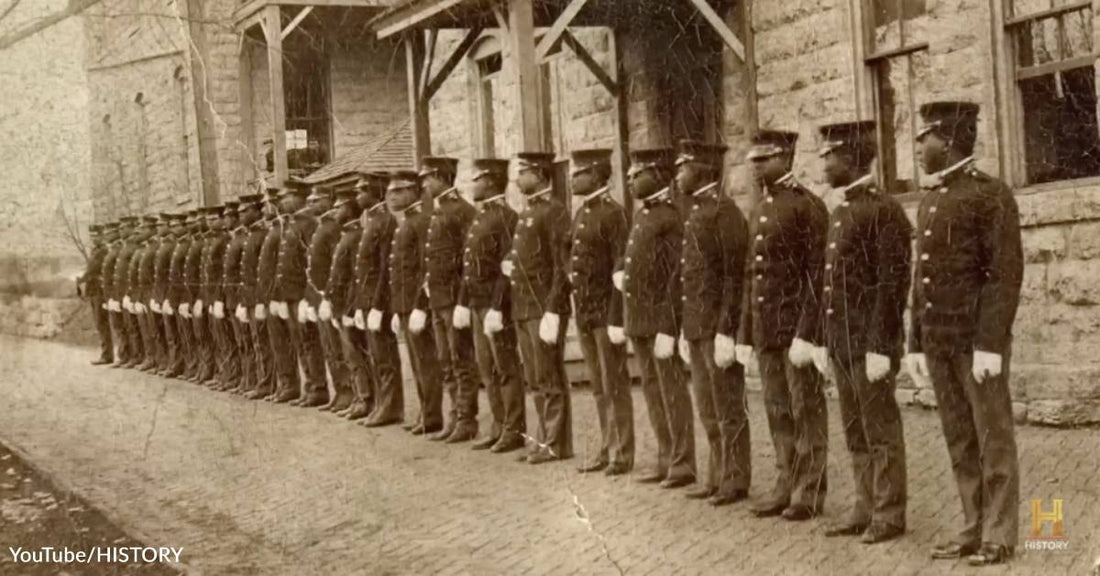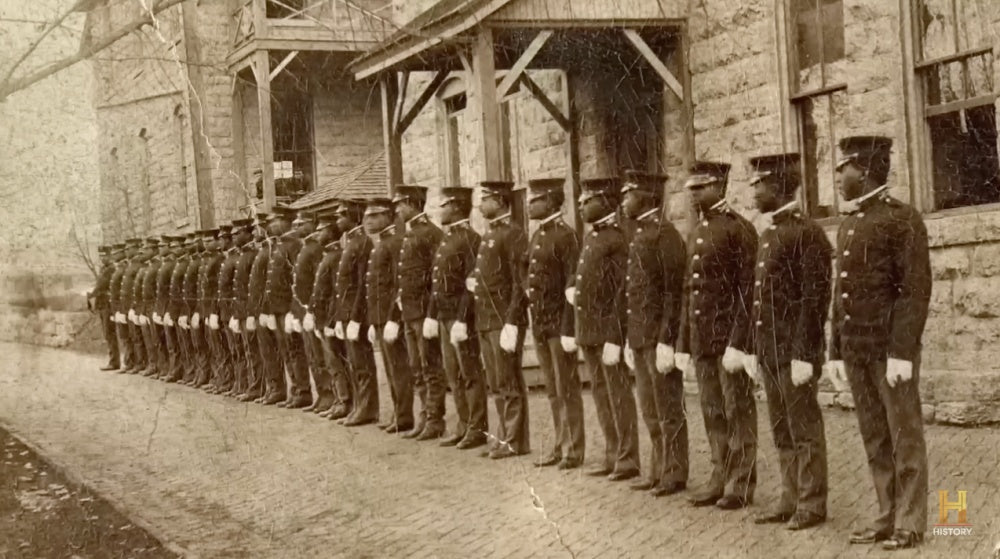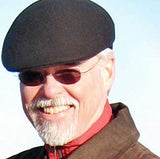The Buffalo Soldiers Through The Eyes of One of Them: Sgt. George Jordan
Dan Doyle
History is a very complex reality. But it is often seen, like all things human, from a particular perspective. The problem is that any one perspective is not the full story. We have all heard the phrase, "History is told through the eyes of the victor," but there are always many more perspectives that get left out for a variety of reasons. Some of those reasons are very practical. Some of those perspectives are left out as the result of more troubling reasons.
During the Civil War, and especially after the promulgation of the Emancipation Proclamation, free Black people and former slaves signed up and served with the Union Army. They did so with distinction and courage. Because of their service in the Civil War, the U.S. Congress passed the Army Reorganization Act in 1866. This allowed the formation of four segregated, permanent regiments of Black soldiers. As a result, the 24th and 25th Infantry Regiments and the 9th and 10th Cavalry Regiments were formed and started writing their own pages in the American history books.
 Photo: YouTube/HISTORY
Photo: YouTube/HISTORYOne of the first to sign up for service in one of these regiments was a young 19-year-old former slave by the name of George Jordan. It is through his eyes that this short documentary video is told. Jordan entered the 9th Cavalry Regiment and found that he was given, in most ways, the same privileges, pay, medical, and retirement benefits as his White counterparts. There was one exception though, an exception that was shaped by the realities of the prejudice of the times, that is, that Black men were not able to become officers. The four segregated Black regiments were all commanded by White officers, many of whom would have preferred to have been transferred back to all-white units.
There was one white officer who was different. His name was Col. Benjamin Grierson of the 10th Cavalry Regiment. In his mind, he was leading soldiers, not Black men. For the Black soldiers in these units, especially in the early days of Reconstruction, being able to enter the Army was a great way to develop yourself and gain important skills. These units had high "esprit de corps," high enlistment rates, and low desertion rates. For former slaves, the opportunity to serve provided consistent food, shelter, medical care, and pay, something most of them had never experienced before.
 Photo: YouTube/HISTORY
Photo: YouTube/HISTORYMost of the Black men in these units were uneducated and illiterate, as a result of slavery. One of the interesting elements of this story is the contribution that Black Chaplains made to the lives of these men. The Chaplains took on an extra role in that they were instrumental in teaching these soldiers how to read and write, which opened the doors to some of them being able to be promoted to the rank of sergeant. This was significant, as this was a true leadership opportunity for these men. In the enlisted ranks, sergeants are proven leaders and highly experienced.
One of the first Black men to be promoted to the rank of sergeant was George Jordan. For the most part, though, the Black soldiers were generally employed in preparing forts and digging ditches. Over time, as in any unit, some proved themselves to be exceptional leaders of men. Jordan's promotion to sergeant was due to this, and he would prove himself further during the Indian Wars.
 Photo: YouTube/HISTORY
Photo: YouTube/HISTORYThe Buffalo Soldiers were involved, among other things, in being a protective force for the ever-growing numbers of Americans moving westward after the Civil War, expanding the territory of the United States. As a result, they became involved in the Indian Wars in the 1870s and 1880s. During a battle at Ft. Tularosa, NM, Sgt. Jordan was in charge of a detachment of 25 troopers and was charged with defending a small settlement. His actions during that battle were rewarded with a Medal of Honor.
Jordan would not be the only Buffalo Soldier to be awarded the Medal of Honor. Seventeen others would also receive the nation's highest honor for courage in battle during the time of the Indian Wars. You will meet one of them in the person of Sgt. Ed Davis in this video as well.
 Photo: YouTube/HISTORY
Photo: YouTube/HISTORYThe history of the Buffalo Soldiers is one of those perspectives of history that is often left out in the larger context of the nation's history. But as you can see here, these four segregated Army regiments had a profound role in American history as this country expanded during the late 1800s. They were often the difference between life and death for those early settlers. As one of the interviewees in the film indicates, when those pioneers were in trouble, they called on the men in blue, that is, the U.S. Army, for protection, and most of the time, "the men in blue were Black."
This story is just another in the many countless stories of history that make up the larger American story. It is a story that is as important to the larger historical reality of this nation as any other. If looked at from the proper perspective, the story of the Buffalo Soldiers is an integral part of the multi-faceted tapestry that is this nation. The great strength of this nation is built upon the stones of this story just as much as it is on a thousand other stories. A nation that recognizes and honors its full history is a nation that has the capacity and the desire to learn and grow stronger. It is our recognition of the countless contributions of all of our people that makes us great. It is out of such a recognition that we can truly say of ourselves, "E Pluribus Unum," or "Out of Many, One." This is our true strength.
https://www.youtube.com/watch?v=BOXCd7Lt0IY


